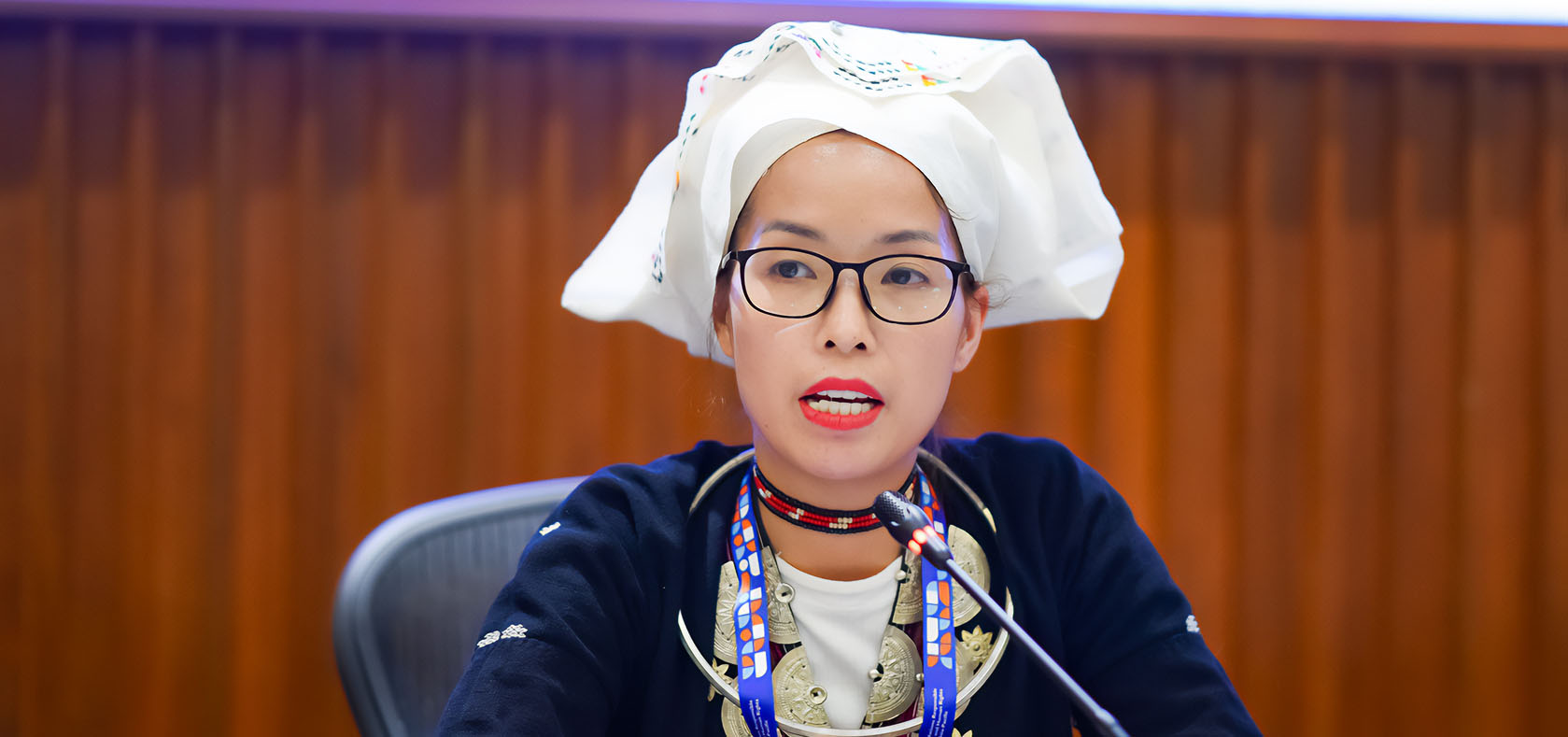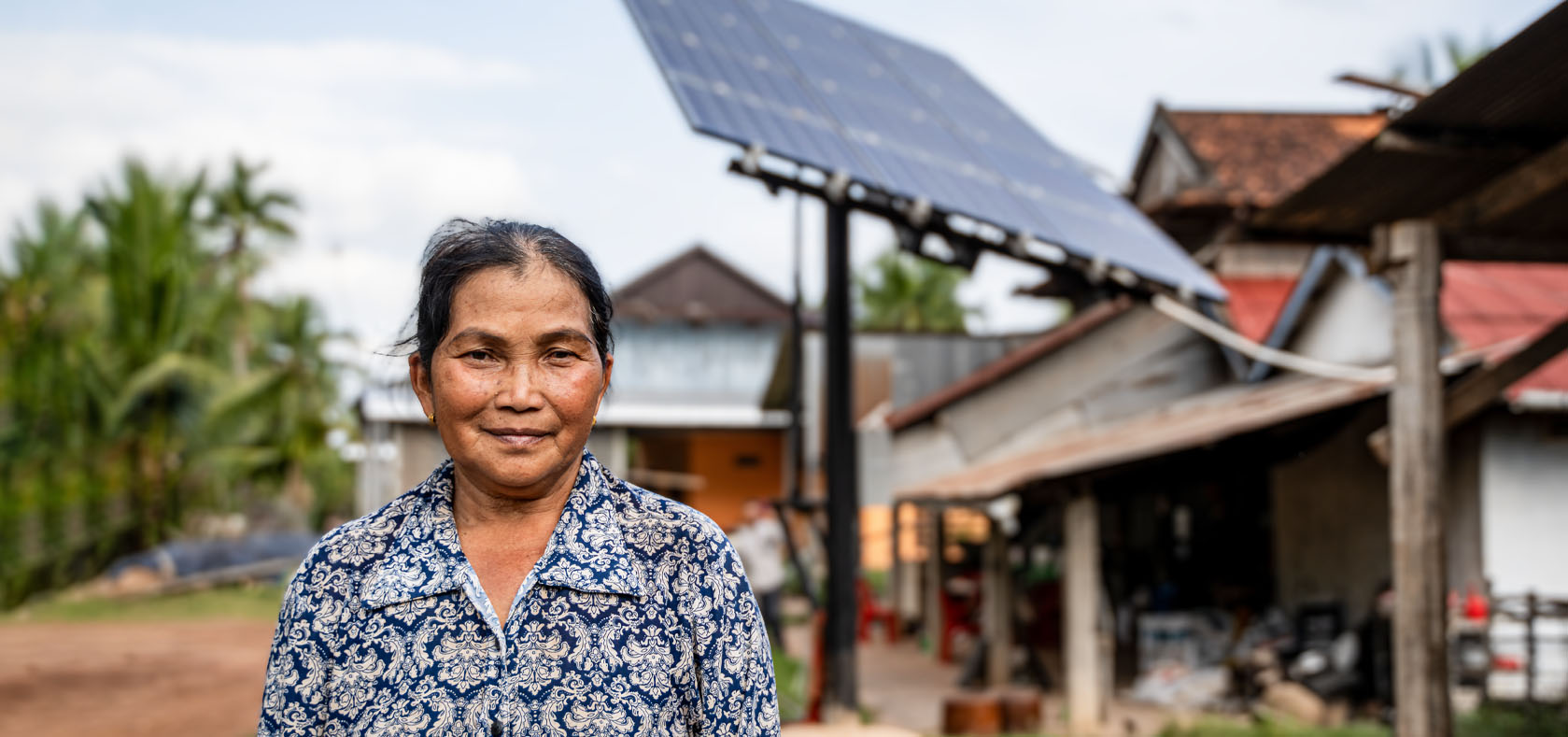Women leaders needed for a just transition to clean energy in Asia, panel says
Date:
Author: Avipsha Rayamajhi

Bangkok, Thailand — The importance of women’s leadership in the transition to renewable energy in Asia has been highlighted in a panel discussion organized by UN Women and United Nations Environment Programme (UNEP), which jointly implement the EmPower: Women for Climate-Resilient Societies programme.
The discussion on Unlocking the Potential of Women’s Leadership for Accelerating the Just Energy Transition was held on 8 June 2023 in Bangkok, during the 5th United Nations Responsible Business and Human Rights Forum, Asia-Pacific.
The panelists, all women, were Duong Khanh Ly, Director of Nghia Ta Cooperative in Bac Kan Province of Viet Nam; Kathy-Thuy Nguyen, Country Director, Viet Nam, of Impact Investment Exchange, a Singapore-based company; Alice Jipius, Manager of Tonibung, a renewable energy organization in Malaysia led by indigenous people; and Amira Bilqis, Analyst of Modelling and Policy Planning at the ASEAN Centre for Energy, Indonesia. (ASEAN is the 10-member Association of Southeast Asian Nations.)
Duong is a beneficiary and the ASEAN Centre is a programme partner of EmPower, a Swedish Government-funded effort that protects women and girls from natural disasters and climate change.
In opening the discussion, AnnaMaria Oltorp, Head of Development Cooperation, Regional Asia and the Pacific section, Embassy of Sweden in Bangkok, noted that the region was vulnerable to climate change impacts because of its heavy reliance on natural resources. Renewable energy use can mitigate the risks, but must be based on principles of equity and inclusivity, she said.
“The just energy transition is crucial to address the climate crisis while also ensuring that women and marginalized groups are not left behind in the transition,” she added.

Jipius emphasized the importance of addressing gender-specific needs. She said that at Tonibung, “every renewable energy project must include socioeconomic initiatives to empower women, especially those from indigenous groups, financially.”
Nguyen discussed the Impact Investment Exchange’s recently launched Women’s Livelihood Bond, which helps women enter the green workforce through private sector investments in enterprises such as solar and electric vehicles.
“We take this approach because we believe women to be drivers of change,” she said.
Bilqis of the ASEAN Centre for Energy stressed the importance of collaboration across ministries and government agencies. However, the lack of gender-disaggregated data in the clean energy sector poses challenges for policymaking, she said.
The panelists also discussed social norms that limit women’s participation in the sector.
Duong said no one, not even her family, supported her decision to set up her agricultural cooperative. Still, she succeeded – the cooperative produces yellow flower tea using a solar drying house and provides women with livelihoods.
On overcoming social stigmas, Bilqis said that it was encouraging to see several countries in Asia providing support and empowerment programmes to women who want to work in the renewable energy industry. However, collaboration among countries is needed to speed up progress, she said.